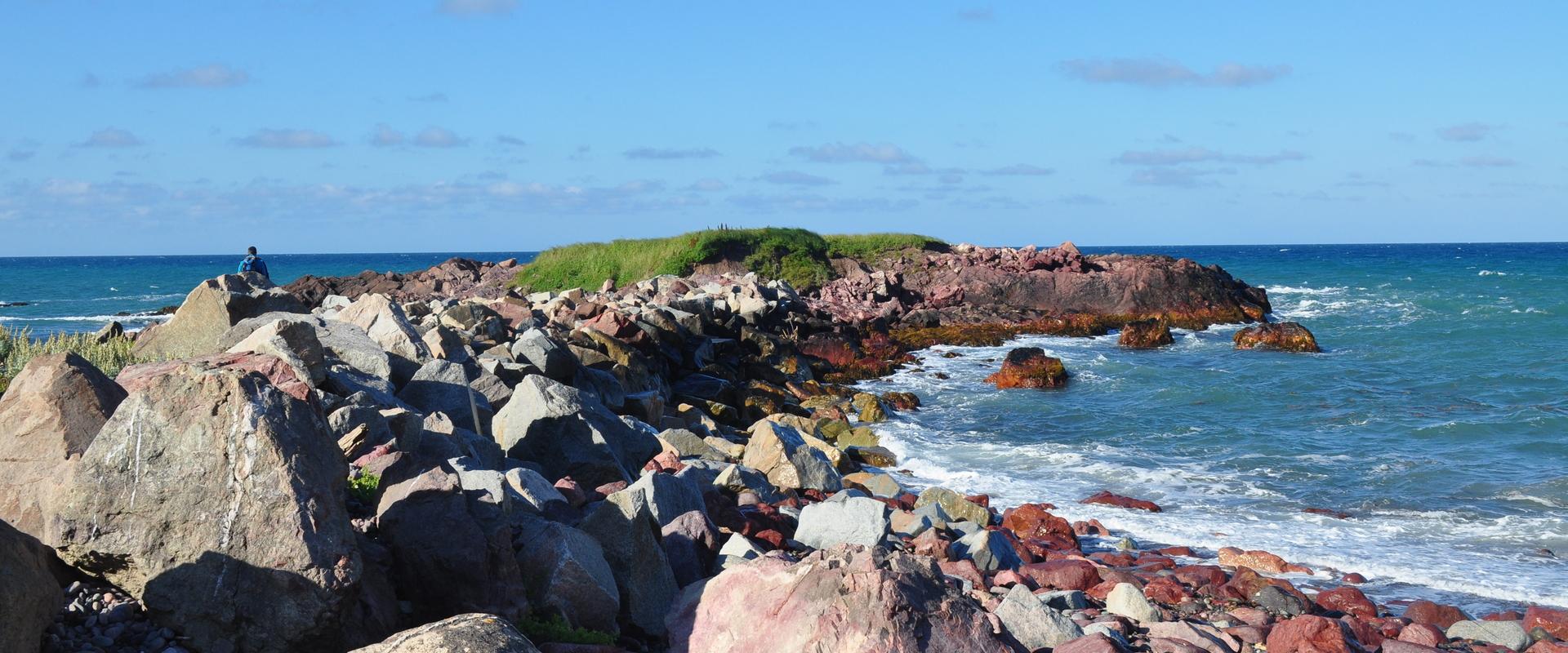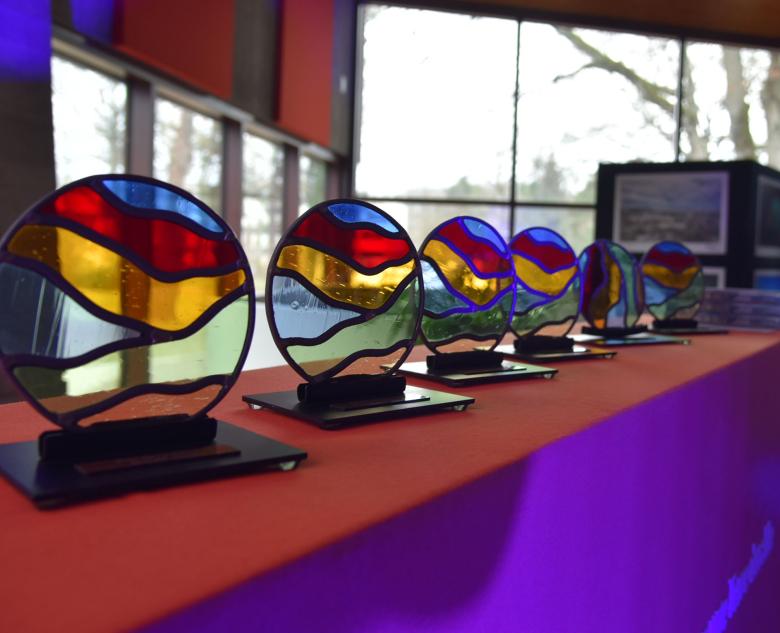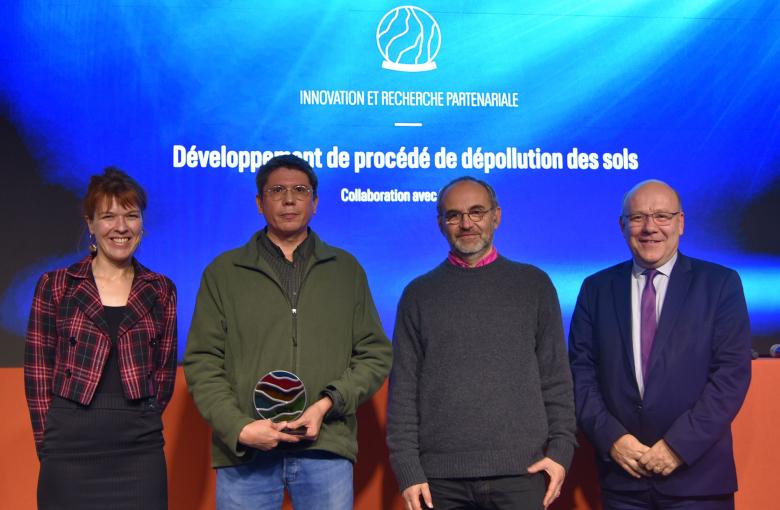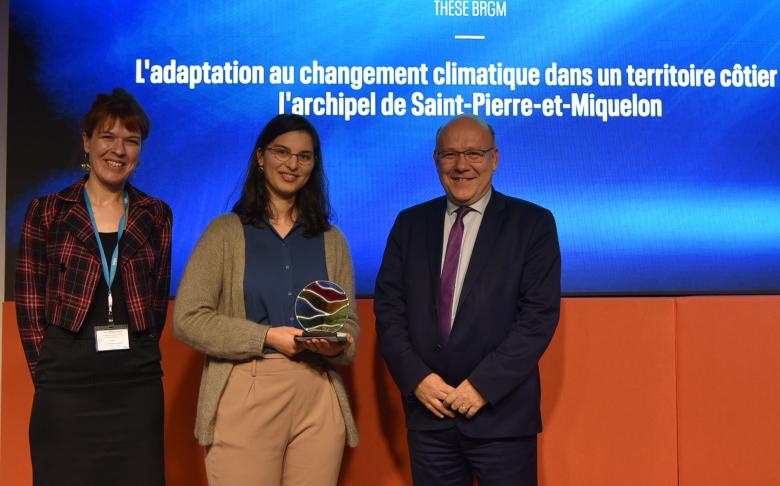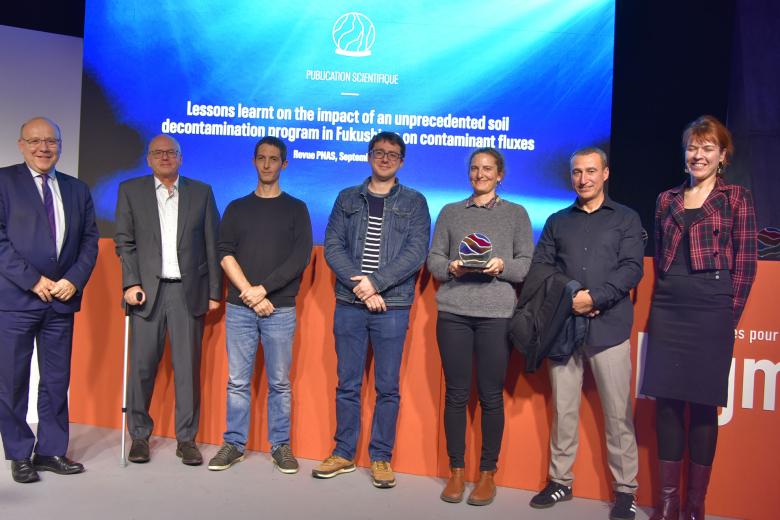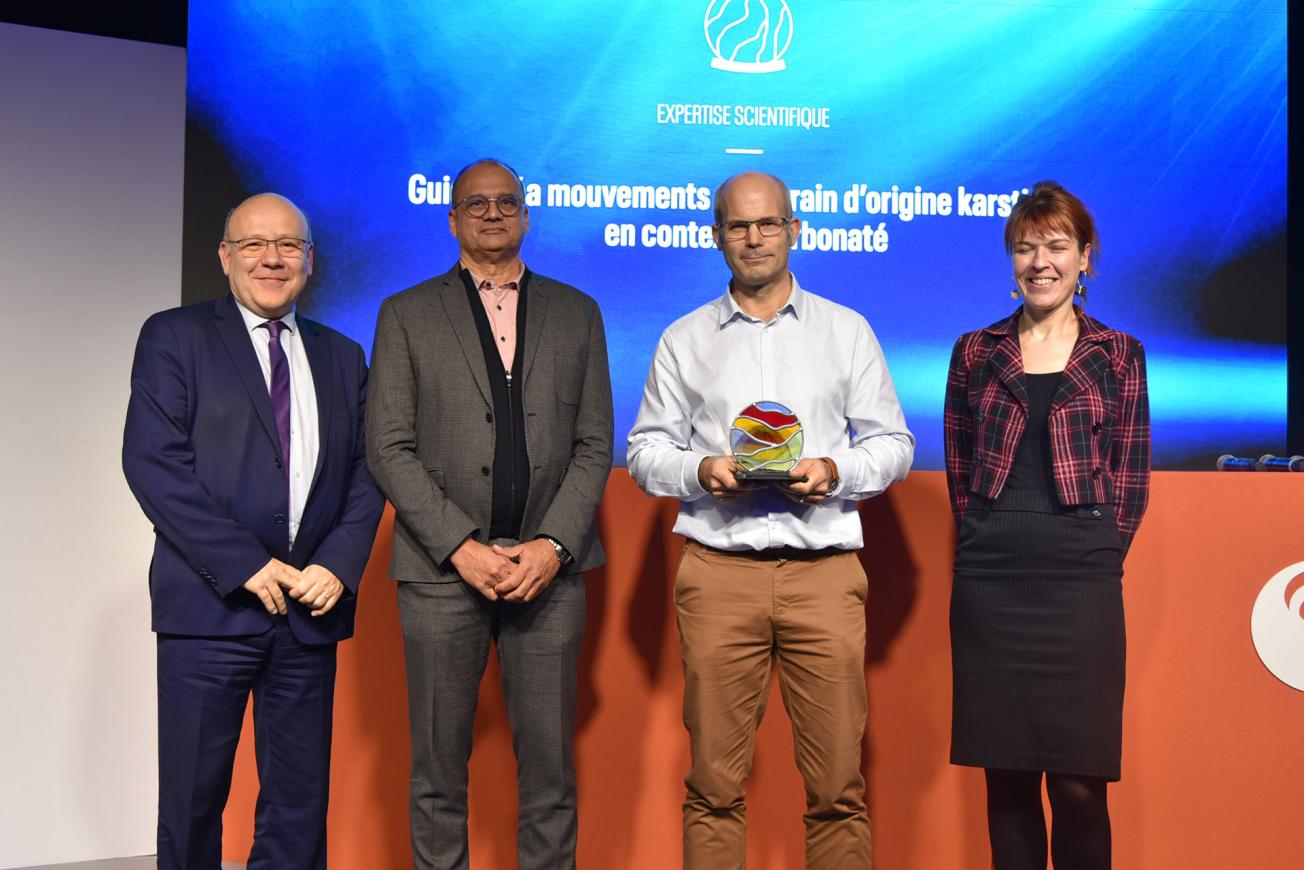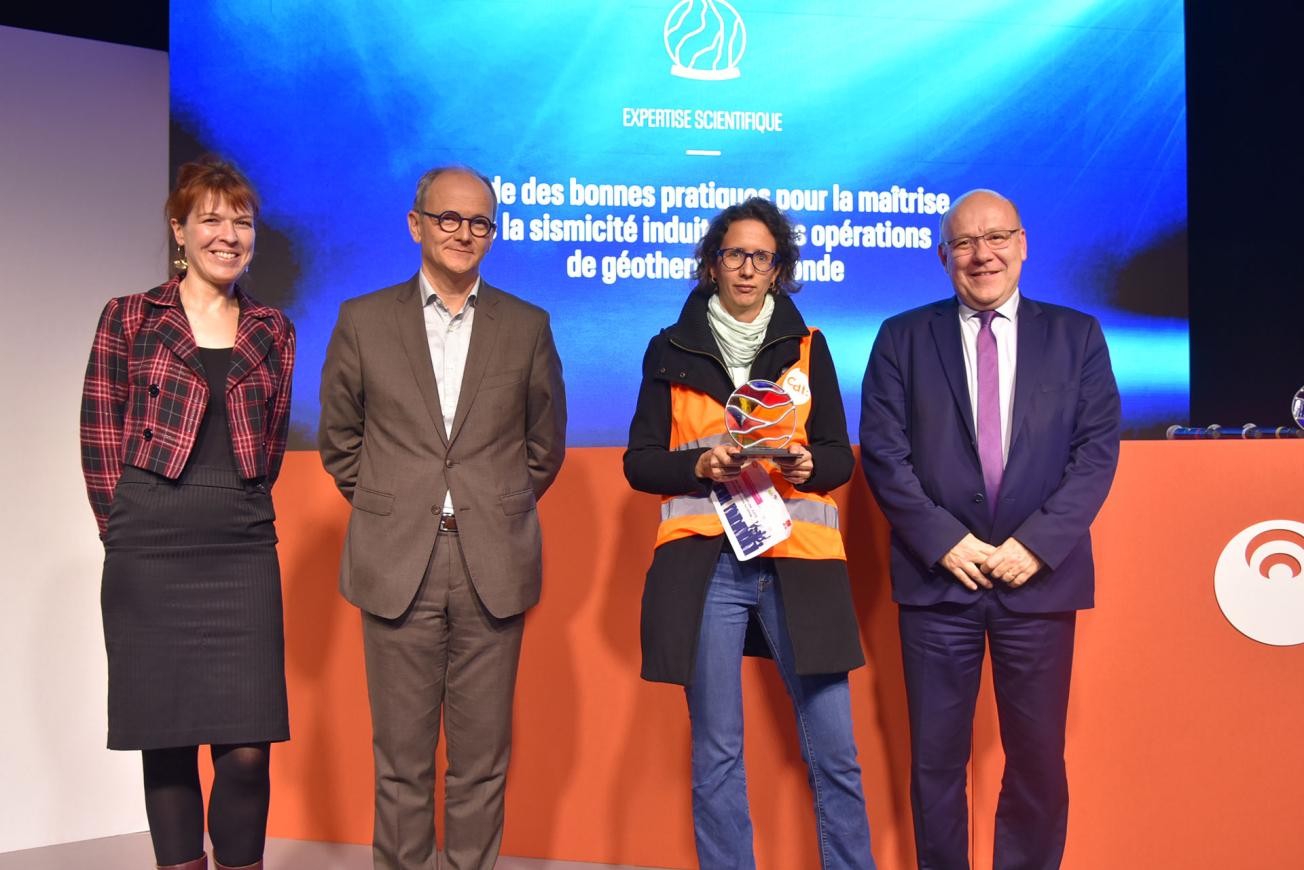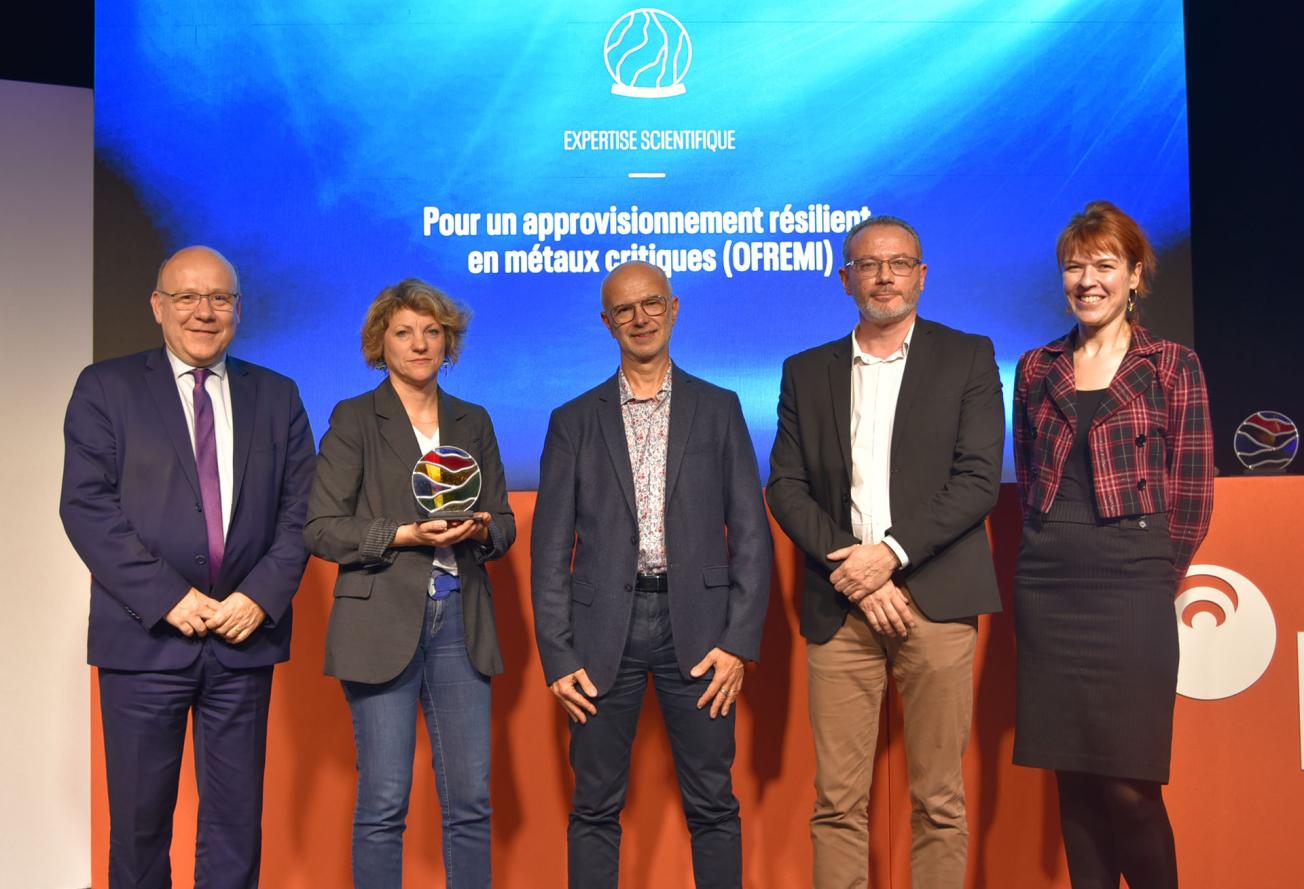The BRGM Awards: a competition to reward excellence on the part of BRGM Group employees
The BRGM awards are an incentive to excel, which has been organised since 2017 to spotlight outstanding results achieved by BRGM Group employees.
In this 2023 edition, six winners or teams won awards in four categories:
- the prize for scientific expertise (with three winning projects),
- the prize for innovation and research partnerships,
- the prize for scientific publications,
- the prize for a thesis.
The prize for innovation and research partnerships
The prize for innovation and research partnerships was awarded to BRGM’s research project with Colas on the development of soil decontamination processes.
BRGM and Colas have developed an ongoing partnership covering various R&D projects over a number of years. The two organisations work together to find solutions for managing complex pollution at brownfield sites and for treating various pollutants.
Several joint patent applications have been filed.
Awarded to Stefan Colombano, Clément Zornig and Dominique Guyonnet
The thesis prize
This prize is awarded for an outstanding thesis which has been defended during the year.
In 2023, Xenia Philippenko-Crnokrak was awarded the prize for her thesis on an important and topical subject: adaptation to climate change, analysed here with respect to the archipelago of Saint-Pierre-et-Miquelon, a region in which an adaptation effort seems to be underway.
This thesis combines very different scientific themes, ranging from sea-level rise and coastal risks to issues concerning the perception of climate risks and adaptation to them. It used a complete and coherent set of social science methods (document study, group workshops, surveys, etc.). It has identified opportunities for adaptation in the region, which are useful for both the State and the Region.
In addition to recognising its scientific excellence, the jury appreciated the efforts made to popularise the project and reach out to the general public, particularly the people of Saint-Pierre-et-Miquelon.
Prize awarded to Xenia Philippenko-Crnokrak for her thesis entitled "Adaptation to climate change in a coastal region: the archipelago of Saint-Pierre-et-Miquelon", in collaboration with the Université Panthéon-Sorbonne.
Prize for a scientific publication
This prize rewarded a study conducted by BRGM in conjunction with French and Japanese researchers, which was published in the American journal PNAS in October 2023. It provides an estimate of the amount of radioactive elements still present in the environment surrounding the former Fukushima power plant following the nuclear accident in March 2011, after one of the largest decontamination programmes in history.
According to the study, decontamination efforts after the disaster were very effective in eliminating caesium 137, but a large proportion of this radioactive contaminant persists in forests that have not been treated.
This study raises questions about the cost/benefit ratio of partial decontamination, given that by 2019 only 30% of the inhabitants had returned to live in the region. In addition, this modelling tool could be used to simulate management scenarios in the event of future nuclear or industrial accidents.
Prize awarded to Rosalie Vandromme, Thomas Grangeon Olivier, Valentin Landemaine and Olivier Cerdan, for their article "Lessons learnt on the impact of an unprecedented soil decontamination program in Fukushima on contaminant fluxes", published in the journal PNAS.
Prize for scientific expertise: three winning projects
Landslides of karstic origin: a methodological guide
This prize was awarded for the work carried out for the guidebook entitled "Risk of karstic ground movements in a carbonate context", published in partnership with Cerema in June 2023
It is intended for players in the spatial planning and construction sectors. To help them manage these risks more effectively, it proposes a methodology for assessing and mapping the risk of karstic ground movements.
Prize awarded to Eglantine Husson, Gildas Noury and Jérôme Perrin for the guidebook entitled "Risk of karstic ground movements in a carbonate context".
Deep geothermal energy: a guidebook for controlling induced seismicity
In June 2023, following the 2021 reform of the French Mining Code and the Climate and Resilience Act, BRGM and Ineris published a guidebook on best practice for controlling seismicity induced by deep geothermal operations, aimed at all stakeholders in the sector (industry, elected representatives and government authorities).
The prize for scientific expertise was awarded to the team in charge of this guide, which should help to achieve the objectives of the Geothermal plan presented by the Government in 2023.
Awarded to Julie Maury, Pascal Dominique and Marianne Peter-Borie for the "Guide des bonnes pratiques pour la maîtrise de la sismicité induite par les opérations de géothermie profonde."
OFREMI: French Observatory of Mineral Resources
OFREMI, the French Mineral Resources Observatory, was created in November 2022 to strengthen the resilience and sovereignty of France's strategic industrial sectors by helping them to secure their supplies of mineral resources.
In 2023, a number of actions were carried out as part of this observatory, including setting up a price watch for the main industrial metals, quantifying the requirements for critical materials for electric vehicles between now and 2050, and analysing the supply chains for various minerals. The prize for scientific expertise rewards all this work.
Prize awarded to Stéphane Bourg and Anne Bialkowski.

